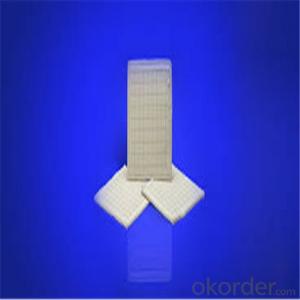Metal roofing is a popular choice for many homeowners and builders due to its durability, low maintenance, and aesthetic appeal. However, one concern that often arises is the insulation of metal roofs. In this article, we will explore the different types of insulation materials available for metal roofing, the factors to consider when choosing the right option, and the benefits of proper insulation.
Why Insulate Metal Roofs?
Before we dive into the different types of insulation materials, it’s important to understand why insulating metal roofs is essential. Metal roofs, while durable, can conduct heat and cold, which may lead to increased energy consumption and discomfort inside the home or building. Proper insulation can help maintain a comfortable temperature, reduce noise, and even extend the life of the roof.
Types of Insulation Materials for Metal Roofs
1. Fiberglass Batts: Fiberglass batts are a common insulation material used in many construction projects. They are made from glass fibers and are available in various thicknesses. Fiberglass batts are affordable and easy to install but may not provide the best thermal performance.
2. Cellulose: Cellulose insulation is made from recycled paper products and is an environmentally friendly option. It has good thermal performance and can be blown into tight spaces. However, it can be more expensive than fiberglass batts and may require professional installation.
3. Spray Foam: Spray foam insulation is a versatile option that can be applied to various surfaces, including metal roofs. It expands to fill gaps and crevices, providing an excellent thermal barrier. It is more expensive than other options but offers superior insulation properties and can also act as a vapor barrier.
4. Rigid Foam Board: Rigid foam boards, such as extruded polystyrene (XPS) or polyisocyanurate (PIR), are dense and provide high thermal resistance. They are easy to install and can be used in combination with other insulation materials. However, they can be more expensive and may not be suitable for all metal roofing systems.
5. Reflective Foil Insulation: Reflective foil insulation, also known as radiant barrier, works by reflecting heat away from the roof surface. It is a thin, lightweight material that can be installed under the metal roof panels. While it is not a substitute for insulation, it can complement other insulation materials to improve thermal performance.
Factors to Consider When Choosing Insulation
1. Climate: The climate in your region plays a significant role in determining the type of insulation material that will work best for your metal roof. In colder climates, you may need a higher R-value to keep the heat in, while in hotter climates, you may need a material that reflects heat away.
2. Building Type: The type of building you are insulating can also influence your insulation choice. For residential buildings, you may prioritize comfort and noise reduction, while commercial buildings may focus more on energy efficiency and cost-effectiveness.
3. Cost: Insulation materials vary in cost, and it’s essential to consider your budget when making a decision. While some materials may offer better performance, they may not always be the most cost-effective option in the long run.
4. Installation: The ease of installation can also be a factor to consider. Some materials may require professional installation, which can add to the overall cost, while others can be installed by the homeowner.
5. Environmental Impact: If you are environmentally conscious, you may want to choose an insulation material that is made from recycled materials or has a lower environmental footprint.
Benefits of Proper Insulation
Proper insulation for your metal roof can offer several benefits, including:
– Energy Efficiency: By reducing heat transfer, insulation can help lower your energy bills and contribute to a more sustainable lifestyle.
– Comfort: Insulation can help maintain a consistent temperature inside your home or building, providing a more comfortable environment.
– Noise Reduction: Insulation can also help reduce noise from rain, hail, and other external factors, creating a quieter space.
– Durability: Proper insulation can protect your metal roof from temperature fluctuations, which can help extend its lifespan.
– Resale Value: A well-insulated home or building can be more attractive to potential buyers, potentially increasing its resale value.
In conclusion, choosing the right insulation material for your metal roof is crucial for maximizing comfort, energy efficiency, and durability. By considering factors such as climate, building type, cost, installation, and environmental impact, you can make an informed decision that suits your specific needs and preferences. Remember, the right insulation can make all the difference in the performance and longevity of your metal roof.

